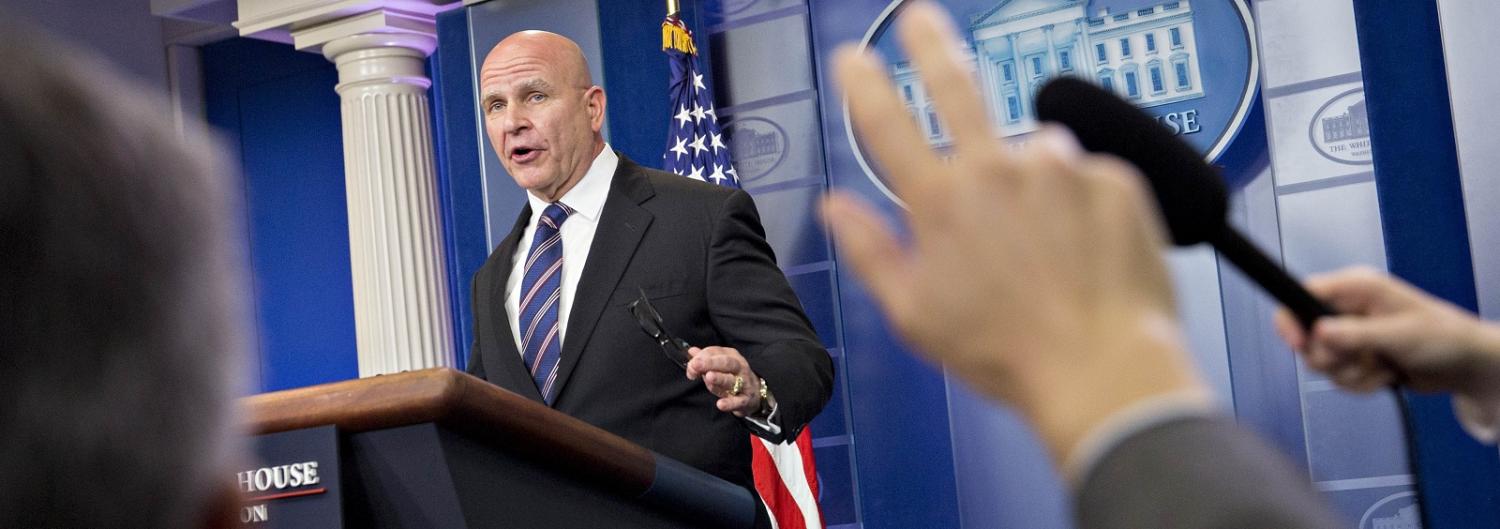President Trump’s cavalier approach to handling sensitive intelligence and security matters, revealed by the Washington Post recently, is causing more than ripples both domestically and internationally. His actions appear to be upending conventions and generating enormous concern within the US system of government and with intelligence partners abroad.
Presidential prerogatives are well understood: Trump has the authority to declassify material he considers important to share for the sake of the national interest. But in doing so he must appreciate the potential repercussions.
The United States has trusted and intimate relations with the ‘five eyes’ community of nations and it has established and well-publicised relations with NATO countries and a number of other alliance partners in Asia and beyond. But there are other more sensitive relations that neither the United States nor their regional partners have sought to declare publicly for fear of potentially damaging domestic political repercussions. There are a number of such countries that work closely with the United States on intelligence and security matters which see the need to keep those ties under the radar. Trump doesn’t quite seem to appreciate the need for a nuanced approach to managing competing international obligations.
Some of those trusting but discrete security partners will now be closely reviewing their intelligence sharing arrangements with the US.
As for the five eyes and NATO partners, they have already had a sobering experience thanks to the damaging leaks associated with Edward Snowden. Despite the damage caused, these partners have continued to maintain quite intimate ties with the US. That intimacy has been under review since Trump took office and undoubtedly will be experiencing closer scrutiny in light of these latest actions.
We should nonetheless be mindful that what we read in the news media might not be quite what it appears. While not seeking to endorse the idea of mainstream media being purveyors of fake news, there is undoubtedly an impulse in certain quarters to at least slightly sensationalise a story to make it jump above the background noise.
In this case, we might be seeing a story exaggerated or taken out of context.
As intelligence practitioners understand all too well, the secret of intelligence and espionage work is in keeping your successes secret. But sometimes there is a need to give a little to gain a little. A quid pro quo arrangement is inherent in intelligence exchanges with allies, coalition partners and sometimes even ‘frenemies’ with whom one is trying to stitch together a deal – such as is the case in Syria. That’s where Russia comes in. Traditionally, the idea of sharing intelligence with Russia has been extremely constrained if not entirely anathema to the US intelligence community. To be sure, some information has had to be exchanged for agreed verification purposes. But this is tightly constrained.
Trump, seeking to demonstrate the ‘art of the deal’ on the international stage, appears to have sought to trade some intelligence for increased cooperation form the Russians. That in itself should not cause us to reel in horror. Sanitised intelligence, drawn from sensitive sources has been passed between nations for a long time. The trick is to sanitise the material by removing reference to the sources and method of collection – be it, say, a special compartmented signals intelligence report or material from a human source that may have been collected by domestic intelligence agencies or passed from an international intelligence partner agency. Sanitisation can work where there is plausible deniability and multiple alternative potential sources that can obscure the real and particularly sensitive origin of the material. But a cavalier removal of indicators of sources and methods, without having a plausible alternative source and method as cover, makes the sanitisation process incomplete. It is here where President Trump may have tripped himself up. He may well have passed information without revealing the source or the method. But if there is no plausible alternative to the source or the method of collection, then the material has not been effectively sanitised and the sensitive intelligence source may well have been compromised. It would take a formal investigation to establish the truth on this matter and it is hard to envisage that truth being established unless President Trump is somehow overruled by the other arms of government.

